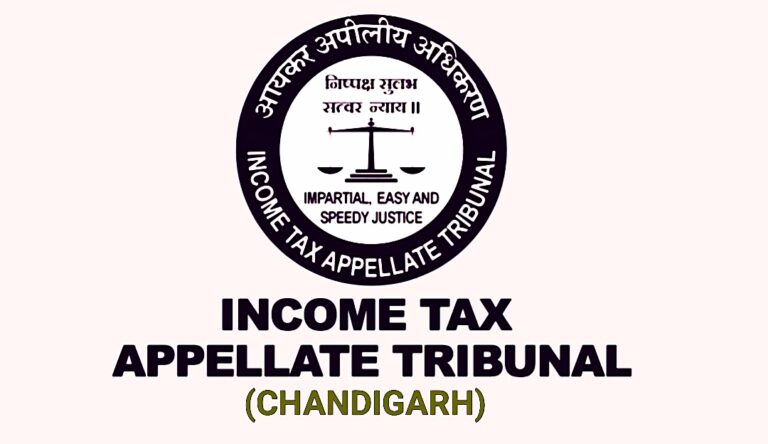The Chandigarh Bench of the Income Tax Appellate Tribunal (ITAT) recently addressed an important procedural issue concerning the validity of income tax proceedings carried out in the name of a deceased assessee. The case, Late Shri Lakha Singh (through legal heir) v. ITO, Kurukshetra, revolved around whether an appellate order passed in the name of a deceased person could be treated as invalid merely because the assessee had died before the order was issued. The Tribunal clarified that such an order is not invalid merely on account of the death of the assessee, provided that the appeal was originally filed in the deceased’s name through a legal heir. However, the ITAT also emphasized that the Commissioner (Appeals) must ensure due process by considering additional evidence and properly adjudicating all legal grounds before passing an order. This ruling provides significant guidance on how tax authorities and legal heirs should handle proceedings when an assessee dies during the course of litigation.
Case Details
Parties:
Late Shri Lakha Singh (through his legal heir) vs. ITO, Kurukshetra (Appeal No. ITA No. 1151/Chd/2024)
Bench: Judicial Member Laliet Kumar & Accountant Member Manoj Kumar Aggarwal
Date of Judgment: 22 September 2025
Assessment Year (AY): 2012-13
Relevant facts:
- The AO completed reassessment under Section 144 read with Section 147 of the Income‑tax Act, 1961, determining total income of ₹ 39,40,000, including:
- ₹ 60,00,000 alleged unexplained investment in immovable property;
- ₹ 39,40,000 unexplained cash deposits.
- The assessee died on 17 January 2020.
- An appeal was filed before the CIT(A) through legal heir (Hira Singh) in the deceased’s name. The CIT(A)’s order, dated 28 September 2024, was passed in the name of the deceased (Shri Lakha Singh).
- The CIT(A) rejected the admission of additional evidence under Rule 46A of the Income-tax Rules, 1962.
Legal issues
- Whether an appellate order (by CIT(A)) passed in the name of a deceased assessee is invalid merely because the assessee has died.
- Whether the legal heir’s filing of the appeal (in the deceased’s name) and the fact of death being known to the department affects the validity of the order.
- Secondary issues: treatment of additional evidence under Rule 46A; whether key legal grounds (e.g., validity of reassessment, service of notice) were adjudicated by CIT(A) properly.
Tribunal’s Holding
- The Tribunal held that the appellate order cannot be held invalid merely because it was passed in the deceased’s name if the appeal itself was filed in the deceased’s name.
“since the appeal before the CIT(A) itself was instituted in the name of Sh. Lakha Singh … the order … cannot be held to be vitiated merely because it was passed in the name of the deceased.”
- However, the Tribunal found fault in the CIT(A)’s procedure:
- The CIT(A) wrongly rejected the admission of additional evidence without at least remanding the matter or seeking a remand report from the AO under Rule 46A(3). The advanced age and ill health of the deceased assessed constituted “sufficient cause” for delay.
- The CIT(A) did not adjudicate important legal grounds (e.g., service of notice under Section 147/148, validity of reassessment) — making the order incomplete.
- Accordingly, the Tribunal set aside the CIT(A)’s order and remanded the matter back to the CIT(A) for fresh adjudication (with opportunity to legal heir) while leaving the AO’s assessment order undisturbed for the time being.
Implications & Take-away
- This judgment signals that mere death of the assessee does not automatically invalidate appeals or appellate orders, provided the appeal was validly filed (even in the deceased’s name) by the legal heir and the department had knowledge of that.
- But the legal heir must ensure proper procedural steps: service of notices, substitution of legal heirs, bringing the legal heir on record, etc. The appeals process must still satisfy procedural fairness.
- The decision differentiates this scenario from the situation where the notice or assessment/reassessment order is issued after death, to a deceased person, without involving the legal heir or bringing them on record. In such cases, orders may be void. E.g., the Tribunal in a different case (Kolkata Bench) held that a notice under Section 148 issued to a deceased person (after death) was “null and void”.
- For practitioners: Validate (a) date of death & whether appeals/filings were before/after that; (b) whether legal heir was on record; (c) whether notices were issued in correct name; (d) whether additional evidence has been given a chance especially when death/ill-health is involved.
-
The judgment doesn’t mean all orders in deceased’s name are safe. If death intervenes before filing of appeal, or legal heirs not on record, or notices issued to deceased after death, then orders may be invalid. The earlier case law remains relevant.
